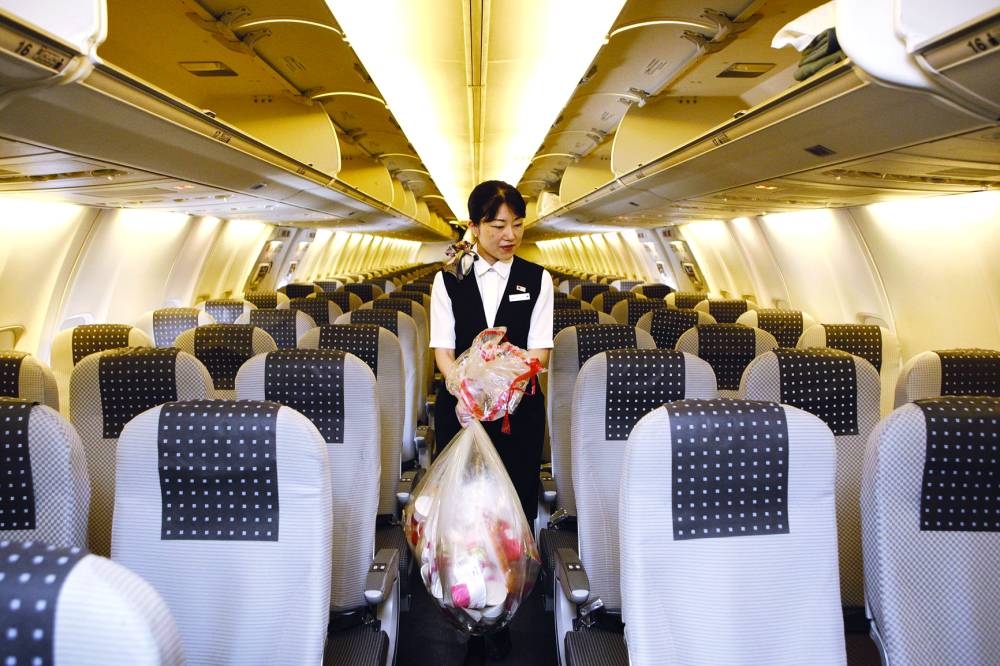
The global aviation industry is a key stakeholder in the noble initiative. Airlines are working collaboratively with regulators to ensure that aviation makes a positive contribution to this SDG target.
The average passenger generates approximately 1.43kg of waste per flight, equating to nearly 6mn tonnes of waste per year once air traffic fully recovers in 2024. Approximately 20% of this is untouched food and drink.
That alone is worth about $4bn, money that is effectively incinerated and that could be allocated to environmental initiatives, according to the International Air Transport Association (IATA).
Of course, the fact that this food and drink is sealed and untouched also suggests it could be used—perhaps for humanitarian efforts. Or, if bio-treated, it could be a critical energy source. Not so. International Catering Waste (ICW) rules effectively prevent reuse, donation, recycling and bio-treatment.
It should be noted that in 2019, IATA’s Cabin Waste Handbook identified some 23 actions that could improve an airline’s cabin waste performance, including meal selection at time of check-in. Even so, it is clear that smarter regulation would alleviate much of the problem.
Airline meals are produced using Hazard Analysis and Critical Control Points (HACCP) food safety procedures, initially designed by NASA for the Apollo space programme.
“And yet meals produced to such standards are deemed a bio-hazardous waste when discarded by a passenger, requiring specialist handling and treatment,” says Jon Godson, IATA’s Assistant Director, Sustainability.
To demonstrate a potential way forward, IATA will work with six airlines on a TransAltantic reuse and recycling trial in 2023. The aim is to show aviation’s ability to recycle uncontaminated waste.
Handling cabin waste in airlines poses several challenges due to various factors such as limited storage capacity, weight and balance considerations and hazardous materials.
Aircraft cabins have limited storage capacity, and finding adequate space to store waste during a flight can be difficult. As the flight progresses, the volume of waste generated increases, making it necessary to manage the space efficiently to accommodate all waste without obstructing passenger movement or compromising safety.
Airlines have strict weight and balance limits for flights. Excessive accumulation of waste impact the aircraft's weight distribution, potentially affecting the plane's performance and safety.
As a result, cabin crews must carefully monitor and manage waste to ensure it doesn't exceed the permissible limits.
Some waste generated in the cabin, such as batteries, broken glass, or potentially infectious items, are often classified as hazardous materials.
Proper handling, storage, and disposal procedures are essential to mitigate the risk associated with such waste and to ensure the safety of passengers and crew.
The waste collected during the flight needs to be properly disposed of at the destination airport. Ensuring that adequate waste disposal facilities and processes are available at various airports is a logistical challenge.
To address these challenges, airlines continuously work on improving waste management practices, implementing recycling programs, and educating both passengers and crew on the importance of responsible waste disposal during flights. Co-operation from all stakeholders, including passengers, crew, and airport authorities, is vital to mitigate the environmental impact of cabin waste in airlines.
With a huge growth in passenger numbers expected in the coming decade, the volume of cabin waste could more than double in the next 10 years!
This certainly calls for urgent action towards proper cabin waste recycling across the global airline industry.


